
Introduction
Adult carers provide regular and ongoing care to a family member who has a long-term illness, disability, mental health issue or who misuses substances.
The family member may be their partner, parent, child or even a neighbour who couldn’t manage their day-to-day lives without their help.
Caring can be a lifelong commitment for some (for example, parent carers looking after a disabled child) or short-term but intensive (for example, caring for someone after a critical incident such as a stroke).
For many, caring can happen later in life when their own health is starting to deteriorate and we have high numbers of carers over 70 years who are caring for their husband or wife with dementia or significant physical disabilities associated with age.
Whilst caring can be enjoyable, for many the responsibilities can have a significant impact on the physical and mental health of those providing the care.
Our services provide support that makes caring a little easier and that helps carers to stay physically fit, active and socially engaged.
Advice Services
Carers Trust Hillingdon have an experienced and dedicated staff team who provide a comprehensive information and advice service for Carers.
Explore the pages below by scrolling through at your own pace, or use the section buttons to jump straight to the information and services you’re looking for.
Information and Advice
Our confidential service ensures that carers have the right information, tailored to their individual needs whatever their circumstances.
o Expert welfare benefits advice on benefits related to caring and disability issues including help with completion of forms, support to appeal benefits decisions and assistance in dealing with any problems that arise in your caring role.
o Advice and support over the telephone, face to face and at home where appropriate.
o Assistance in accessing care and support.
o Signposting and referral to other support services for additional support.
o Access to other grants and trusts for funding to help in difficult situations.
o Basic debt advice and housing issues
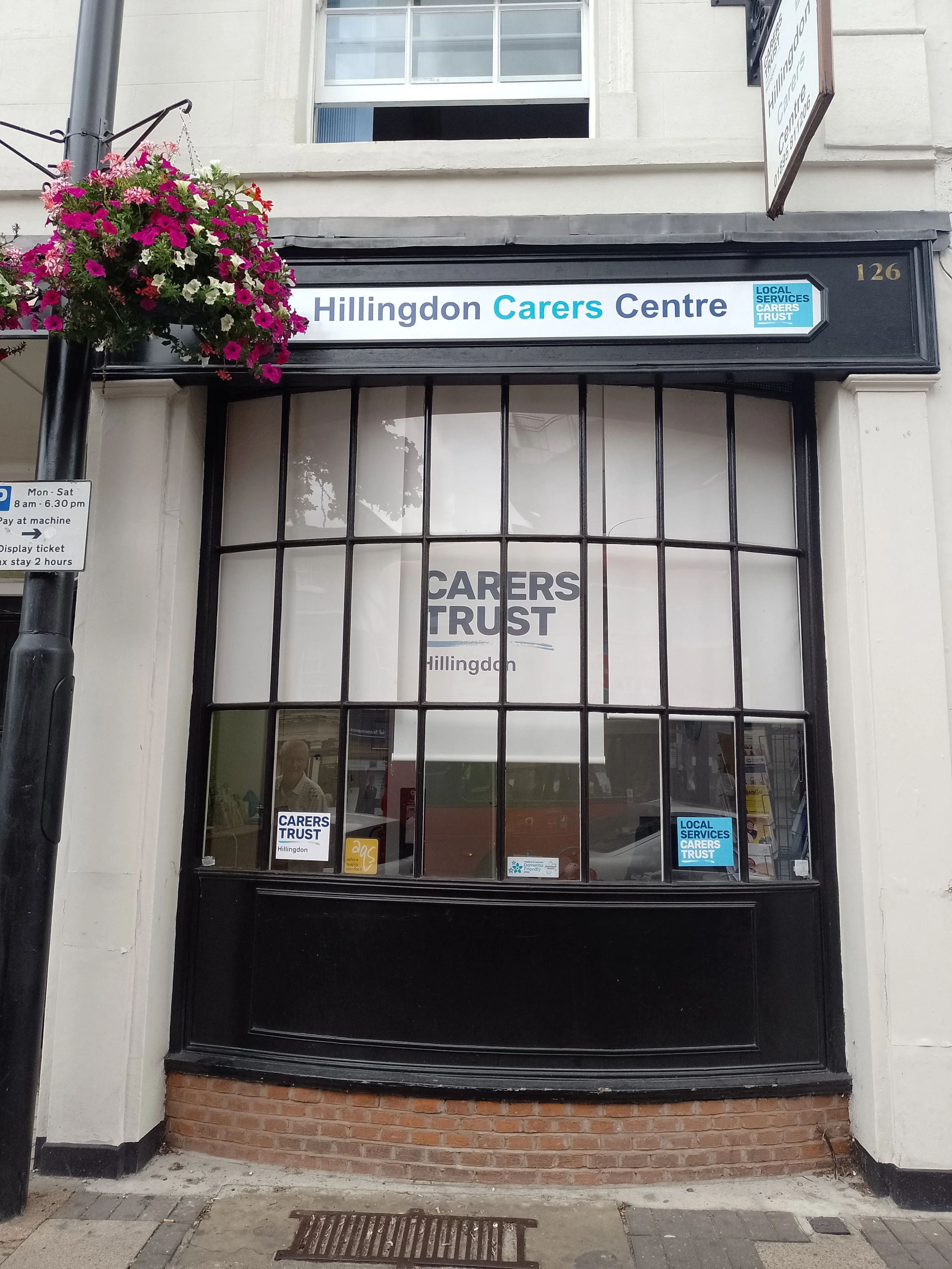
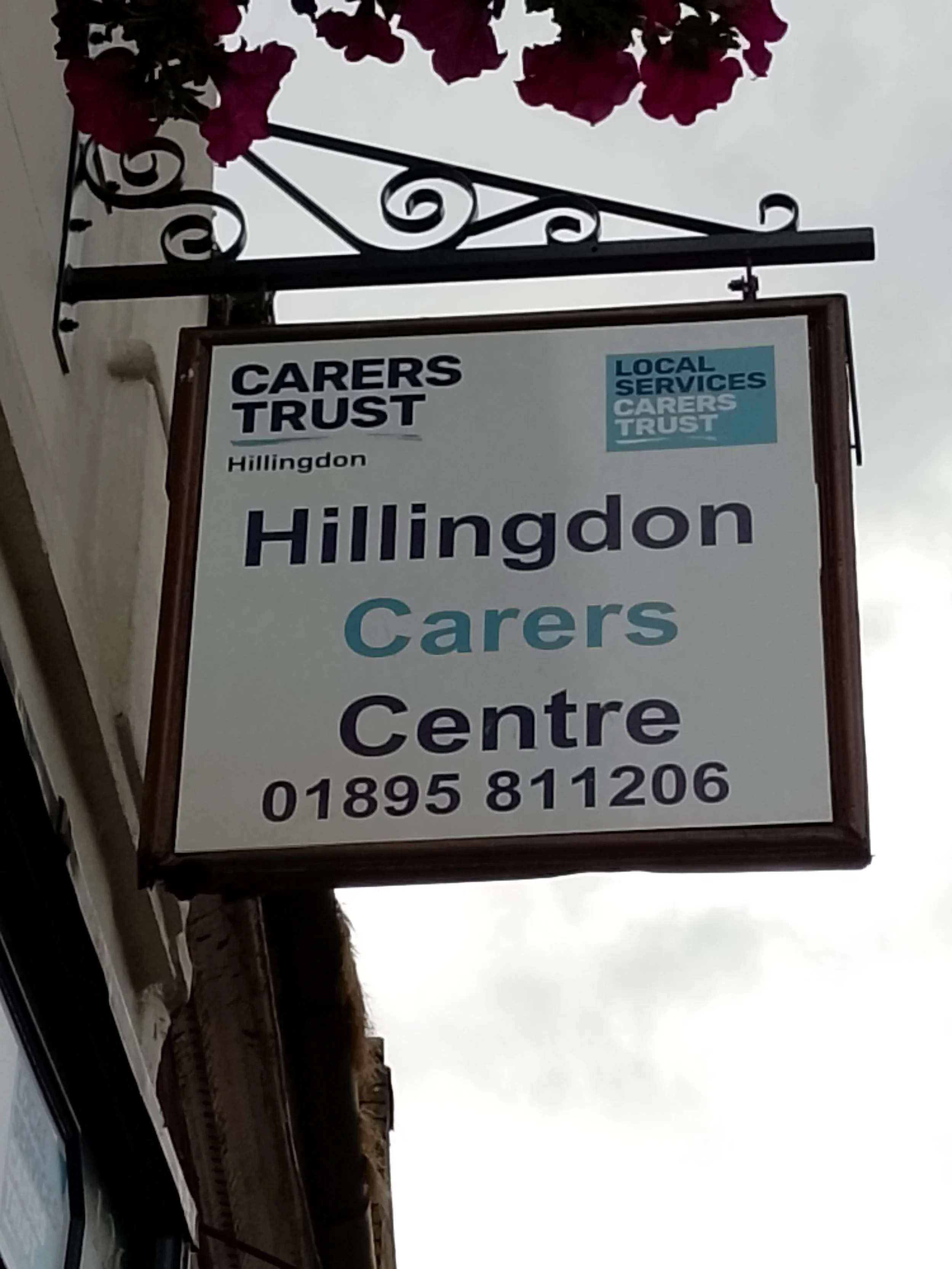

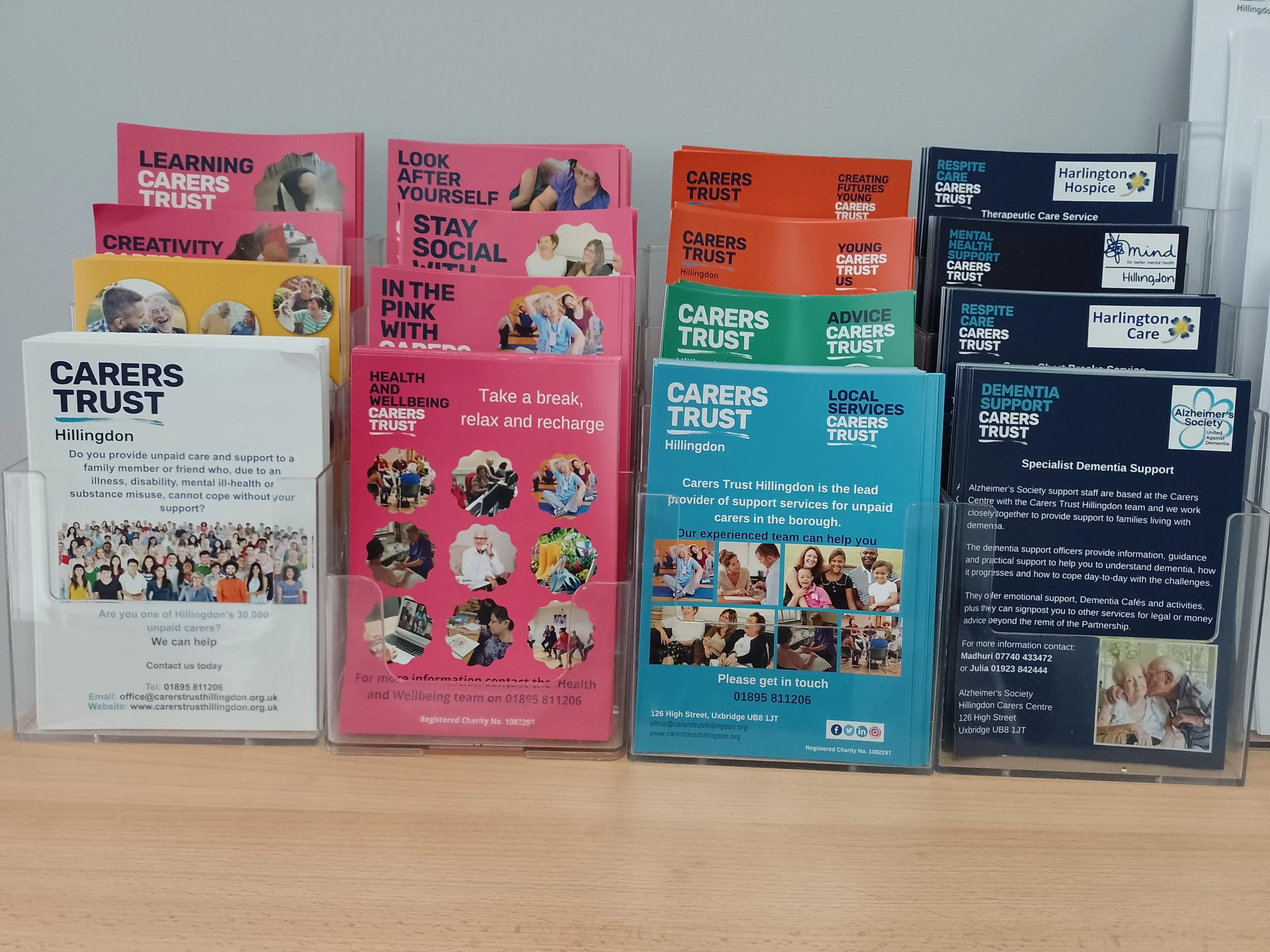
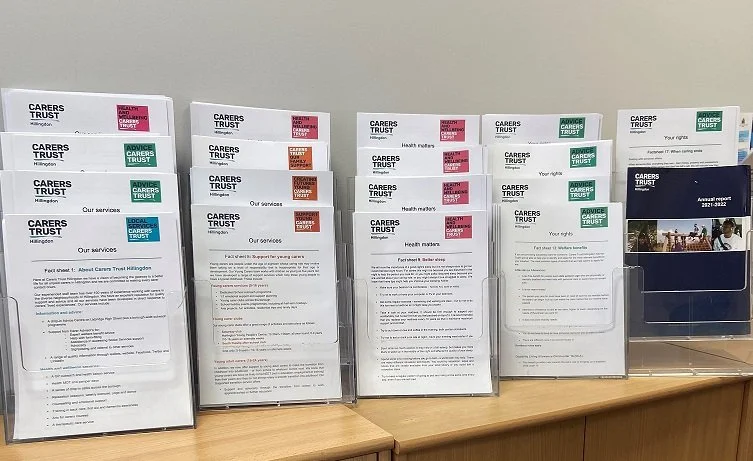
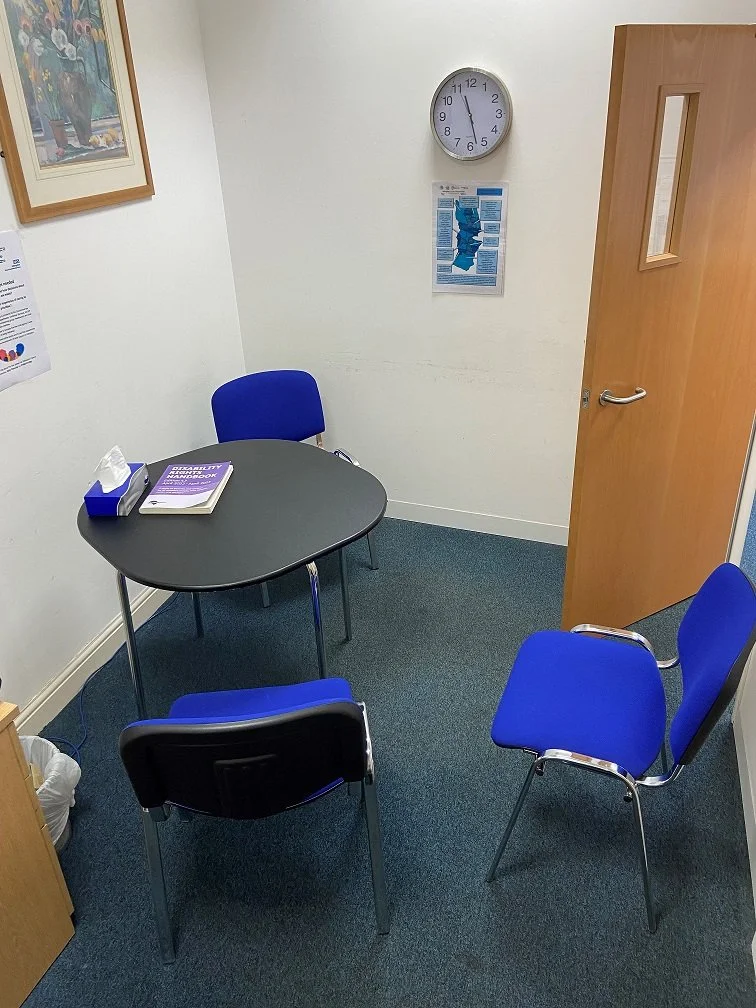

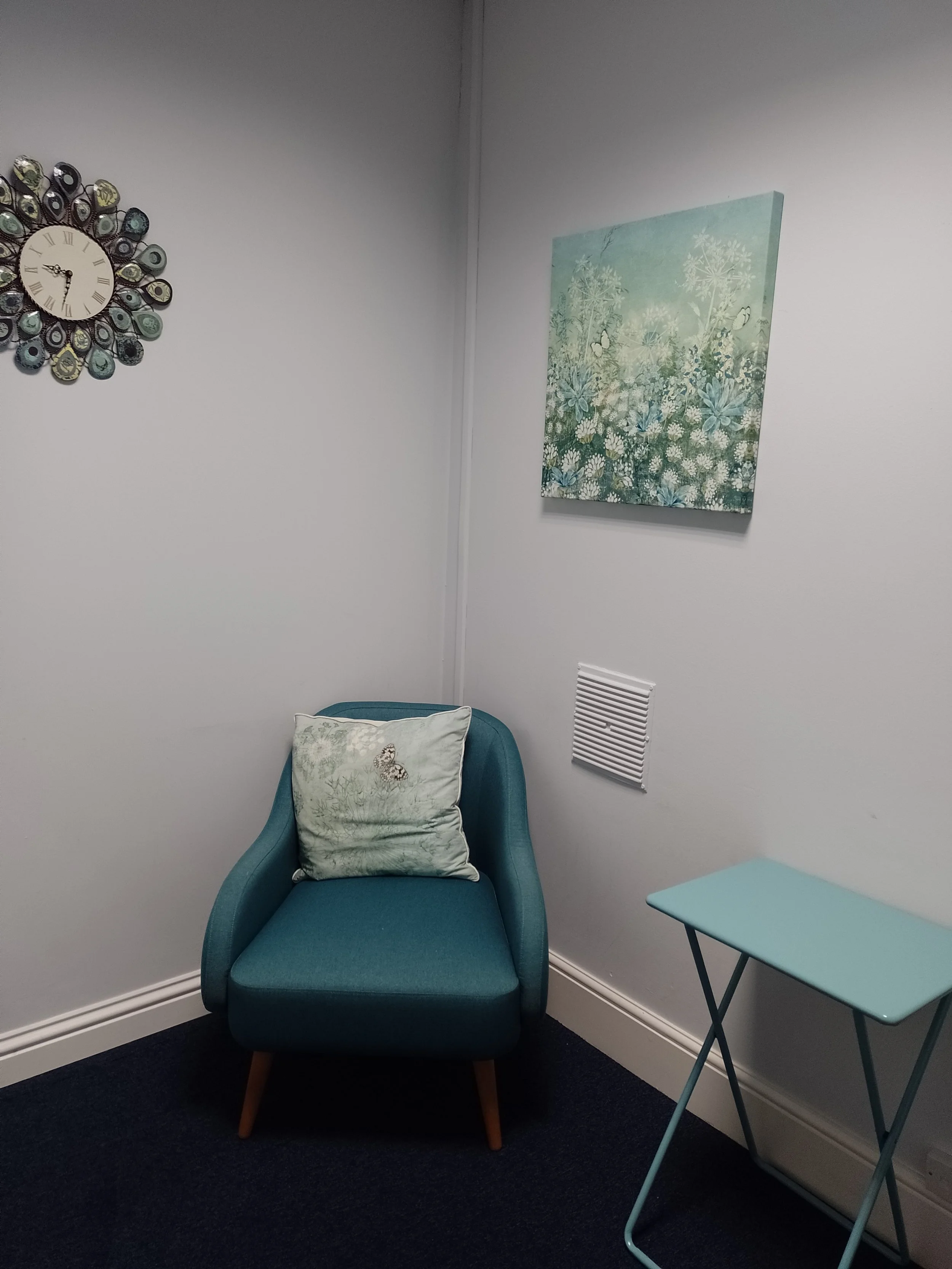
The Carers Assessment is about YOU, and a chance for you to talk about the care you provide and the impact it has on your day to day life. The assessor will look at your unique situation and see whether the local authority or local available services can make caring easier for you.
Before you have a Carers Assessment, you need to think about how the following questions affect you on day to day basis and what impact they have on your caring role:
o Are you getting enough sleep?
o Do you get enough time to spend with your family, friends, social activities?
o Are you eating well?
o Is caring having an impact on your job?
o Can you enjoy your hobbies, have access to training or learning?
o Do you have enough time to care for children or other adults who depend on you?
o Are you struggling financially?
o Are there any other issues that may affect your ability to continue to care?
o Dealing with emergencies?
Carers Assessments
A Carers Assessment is for carers over 18 years of age who are looking after another adult, who is disabled, ill or elderly. For the person needing care they will have a Needs Assessment - this is provided by Adult Social Care
Welfare Benefits
It is important that carers and the people they support get the financial support they are entitled to from the welfare benefits system. Welfare benefits can help ease some of the financial burden that comes with caring and can help you be more independent.
There are a range of welfare benefits and our Advisers’ can help you find out what you are entitled to by:
o Discuss with you what benefits you could be entitled to
o Help complete benefit forms
o Prepare submissions for Tribunals
o Blue Badge, Dial a ride, and Taxicard applications for mobility
o Carers Allowance
o Access to hardship grants or funding
We can do this either over the phone, in person at our advice centre, or home visits.
Debt Helplines - Fact sheet 14






Emergency planning
Who will pick up the pieces when you can’t be there? Are you a carer?
Does someone rely on you? What would happen if you couldn’t be there?
We all think we will always be there, but what if you were ill, had a family crisis to deal with, or you were just running late? What would you do?
That’s where an emergency plan could help. An emergency plan is a plan you set out for the care of an adult or a child in case of emergencies. It makes provisions for occasions when you are unable to fulfil your caring role, and it sets out the practical arrangements for short-term, unplanned periods.
Having a plan in place can stop an emergency becoming a crisis and can give you and the person you care for peace of mind. Emergency planning is relevant to all carers, irrespective of the age of the carer, the age of the person they care for or the health needs or disability the cared-for person has to get a copy of an emergency plan for you to complete.
Please contact Carers Trust Hillingdon office on 01895 811206 for a hard copy to be sent.
Working Carers
Caring for someone is tiring and often unpredictable. If you are a working carer it may seem there simply aren’t enough hours in the day. Finding the right balance can be a challenge, but help is available. There are lots of adjustments you can make to ensure that you find time to keep working and be a carer.
Working carers - Fact sheet 15
Flexible working
If you have been working with your employer for at least 26 weeks, you can request flexible working. Consider your options with your employer: working part-time, working from home, or arriving and leaving an hour earlier.
Time off for emergencies
The length of time must be agreed with your employer, but it is normally one or two days and is unpaid.
Parental leave
If you have been working somewhere for a least a year, you can take some unpaid leave to look after a child under 18 years.
Out and About
Many visitor attractions and leisure facilities will offer unpaid carers free entry if you are supporting the person you care for.
Fact sheets and information
We have a whole range of fact sheets for carers. They cover a broad range of topics from information about our services, your health and your rights as carers.
Pop into our Advice Centre on the Uxbridge High Street and pick up a hard copy or you can download from the website by clicking the link.
Coach 2 Care Service
Developed and delivered in partnership with Harlington Hospice and MyHealth Hillingdon, this service offers compassionate and practical support designed to assist families caring for loved ones at home with advancing illness.
Caring at home can be emotionally and physically demanding often involving the coordination of medical care, household duties, and personal support.
Coach 2 Care provides one-to-one guidance at home through experienced healthcare professionals, helping caregivers manage the day-to-day realities of care.
Support Areas Include:
Assistance with mobility and physical support
Guidance on managing incontinence compassionately and confidently
Tips to enhance nutrition and appetite
Practical ideas to promote better sleep and rest
Whether you're looking for practical advice or emotional reassurance, the service aims to ease the pressures of caregiving and empower families with confidence.
To learn more or request a visit from the service’s family coach:
Call: 0208 106 9201 Extn 317 or Email: coachtocare@harlingtonhospice.org
If you're a professional wanting to refer someone, you can do so easily via the Harlington Hospice Coach 2 Care brief referral form.











